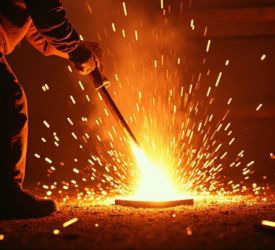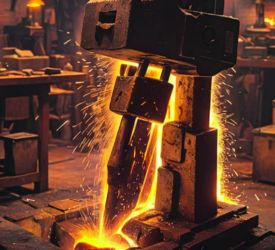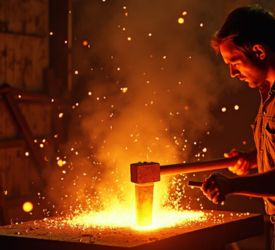Casting vs. Forging: Why Forged Components Outperform Traditional

Modern manufacturing demands components that combine exceptional strength, durability, and precision. While casting has long been a traditional manufacturing method, forged components consistently demonstrate superior performance across critical industries.
Performance Comparison
Research reveals striking differences between forged and cast components:
- Tensile Strength: Forged parts exhibit 26% higher tensile strength
- Fatigue Resistance: 37% improved fatigue performance
- Structural Integrity: Significantly reduced internal defects
Zeometrix Forging Expertise
At Zeometrix, we specialize in advanced forging technologies that transform metal manufacturing. Our precision engineering approach ensures each component delivers maximum performance, utilizing cutting-edge techniques to optimize material properties and structural integrity.
Key Advantages of Forged Components
Mechanical Properties:
- Enhanced grain structure alignment
- Superior strength and ductility
- Reduced internal porosity
- Higher impact resistance
Technical Highlights:
- 58% greater deformation capacity before failure
- Improved directional strength
- Elimination of structural voids
- Consistent mechanical performance
Industry Applications
Forged components excel in demanding sectors:
- Aerospace: Critical structural components
- Automotive: High-stress engine parts
- Energy: Precision industrial machinery
- Medical: Surgical instrument manufacturing
Cost and Performance Considerations
While initial manufacturing costs might appear higher, forged components deliver significant long-term benefits:
- Reduced maintenance expenses
- Extended component lifecycle
- Lower replacement frequency
- Superior reliability
Conclusion
Forged components represent the pinnacle of modern metal manufacturing, offering unparalleled performance, reliability, and engineering excellence across diverse industrial applications.
Technical Specifications
- Strength Improvement: 26% over casting
- Fatigue Resistance: 37% enhanced performance
- Dimensional Tolerance: ±0.001 inches

